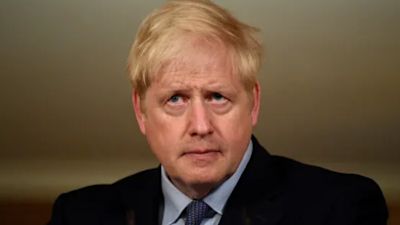Can Boris Johnson nationalise the economy only for a year?

It is extraordinary that Covid-19 has turned Boris Johnson into more Castro than Castro.
By the time the remade Job Support Scheme, the self-employed grant and the business grants terminate at the end of March, we will have experienced a whole year of an economy more socialised - more socialist - than at any point in British history.
Countless millions of workers and business owners will have had their income subsidised by Chancellor Rishi Sunak and the Treasury by between 40% and 80% for all or part of the year.
It is a bail out unprecedented in peacetime, and is not unlike the socialisation and collective endeavour of a world war.
It will redefine us as a nation, and not just because the associated increase in the nation’s debt of well over £300billion won’t be repaid in most of our lifetimes.
The more important consequence is that never again can mainstream politicians say what was seen as truism for the post-Thatcher era, that it is NOT the role of the state to take on the financial risk of keeping workers in their jobs during an economic or technological shock.
Listen to Robert Peston's political podcast:
So very soon after leaving the EU, the UK has tilted towards the European safety-net model, and away from the US model of endemic job insecurity.
Politically this poses a significant challenge for Labour, because it will be hard for any Labour leader to argue that Johnson’s Tories are in thrall to the free market.
If around 10m workers have been on furlough at some point, there are likely to be at least three million benefitting from the remade Job Support Scheme (on the basis of numbers still on furlough and the depressing impact of the Covid "tiers" on business conditions) - which would suggest the state will shell out at least £9 billion by the end of March just to subsidise the pay of workers, whose employers can’t afford to pay them for full-time work and maybe can only afford to pay them for a day a week of work.
Here is the sting. If these are jobs that suddenly become productive again in the spring, then this work subsidy scheme will have prevented 3,000,000 additional people being laid off, and their employing companies and the economy will be able to bounce back rapidly.
An unnecessarily longer term economic slump will have been prevented.
But what if there isn’t a vaccine by then? And what if the economy can’t reopen as usual?
Or what if our spending habits shift in a permanent sense?
Then Johnson and Sunak will face a Solomonic test of their judgement, whether to continue subsidising jobs on an unprecedented scale or whether to risk a delayed and massive surge in unemployment.
I look forward to hearing Johnson explain why it is healthy for the UK to be Cuba without the sunshine for a year, an economy in which every job can be preserved via unprecedented subventions using borrowed money, but any longer than that would be the short cut to penury.
As I say, economic interventions on this scale have profound social and cultural consequences.